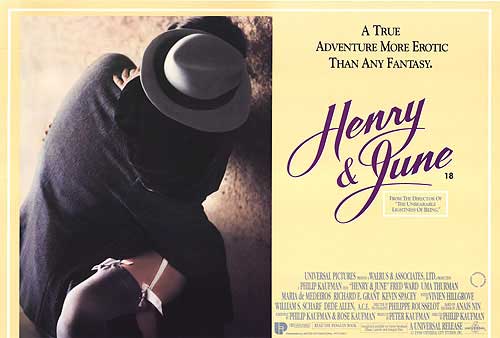http://siskelandebert.org/video/SN3G1D9KY994/Avalon-Listen-Up-Henry-amp-June-Desperate-Hours-1990
25 years ago today, following the surplus of riches (King of New York! Miller’s Crossing! Uh, that “Michael Keaton is an evil tenant” movie!) of the previous week’s show, Siskel & Ebert had a more low-key show, but still one with some gems to recommend. They start off the show with one such gem, that being Barry Levinson’s Avalon, the director’s third film (after Diner and Tin Men) about his hometown of Baltimore, with a very autobiographical story about a Jewish family’s experiences living in the Baltimore suburbs. Roger was impressed by how the film subverted his expectations (set by the numerous semiautobiographical films about immigrant families in America that came before it), and he had particular praise for the ending, which he deemed “poetic and elegiac”, although he liked how the whole of the film made Levinson’s own memories into universal memories. Gene also liked it, noting that he got a little impatient during the first 30 minutes but was rewarded by the remaining hour-and-a-half, where he was affected by the family splintering over petty, minor details, as was Roger, who describes a scene in the movie, where one of the four brothers of the family who initially came to America is angered by the fact that the family cut the turkey at Thanksgiving before he got there. After that is the Quincy Jones documentary Listen Up, which Gene likes for its multifaceted portrayal of Jones, unconventional techniques, and overall look at the world of jazz, not just at Jones. Roger praises its use of celebrity talking heads, which he says is akin to jazz solos contributing a little bit to the whole.
On last week’s show, Gene and Roger covered the creation of the NC-17 rating, with a little bit about the first film to receive the rating, Philip Kaufman’s Henry & June, about the tumultuous relationship between notorious author Henry Miller and his wife June. On this week’s show, they actually review it. Roger likes it for its portrayal of Miller as a man who uses sex to cover up basic insecurities. Gene wasn’t impressed, feeling that the film’s portrayal of Miller didn’t interest him and certainly didn’t make him want to read Miller’s books (he was more interested in Miller’s mistress Nin and her diaries), and that it wasn’t that sexy. Roger agrees on the last point (he and Gene concur that it should have received an R rating no problem) and disagrees about the version of Miller, liking how the film shows his faux-Hemingway attitude to be charmingly dated in the face of the events going on around him.
Their next film is Michael Cimino’s Desperate Hours, a remake of a Humphrey Bogart movie where a cunning criminal (played by Mickey Rourke here) takes a suburban family hostage after escaping from prison. Neither Gene nor Roger are fans, Gene finding Rourke so boring in the lead that there’s no way he could have conceivably charmed his way out of prison as the film shows him to have done. Other than that, Gene isn’t a fan of Cimino trying to make some higher meaning out of the low-rent story, and he’s annoyed by the film’s lack of concern about logic, particularly characters alternately being able and not being able to hear each other through doorways. Roger wonders why any of the events in the film happened except to move the plot forward, and he criticizes Lindsay Crouse’s performance as the FBI agent hot on the trail of Rourke, saying that she acts so bizarre that she seems to be battling a serious mental illness as opposed to doing her job.
The next two films Gene and Roger cover are revivals of animated classics, one just a little more well-known than the other. The first one is Fantasia, and, shocker, Gene and Roger like it. Gene has nothing but praise for the (then-new) restoration, which he feels makes the images sparkle like never before (we get split-screen demonstrations of an old print vs. the restoration print to illustrate this), and which he and Roger are grateful presents the film in its original aspect ratio. The other one is another, then-much more obscure, attempt to animate classical music, that being Allegro non Troppo. Roger feels it’s tremendously entertaining and recommends it for anyone who likes Fantasia, Gene concurring.
Roger chooses this week’s Video Pick, and it’s Edward Zwick’s Glory. He doesn’t actually say you should watch it (hey, they’re pressed for time), just that you should.

